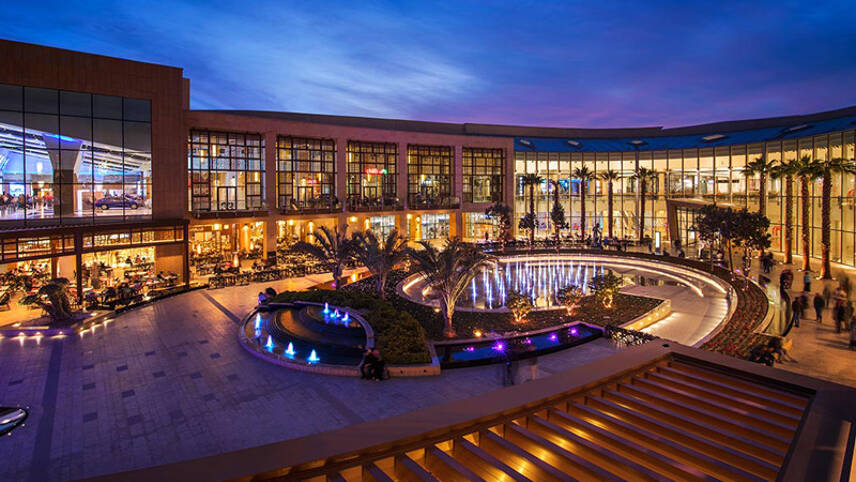Register for free and continue reading
Join our growing army of changemakers and get unlimited access to our premium content

Pictured: Majid Al Futtaim Properties' Mall of Egypt
head of its annual summit in Davos, Switzerland, next week, the WEF has announced the first tranche of signatories to its action plan for net-zero carbon buildings, called the Green Building Principles. The Principles were first published in late 2021 as part of a collaboration between JLL and the WEF, with guidance on reporting progress against them subsequently published in 2022.
Signing on to follow the Principles alongside JLL are the likes of commercial real estate services giant Avison Young, Dubai-based retail and residential property developer Majid Al Futtaim Properties and lighting corporation Signify. Also signing up are Edge, Ivanhoe Cambridge, GPFI Group and Schneider Electric.
The Principles require signatories to target net-zero carbon emissions by 2050 at the latest and to set an interim target to at least halve these emissions by 2030, against an appropriate baseline. This is in line with the global emissions trajectory that climate scientists say is necessary to give humanity the best chance of holding the global temperature increase below 1.5C.
The 2030 commitment covers operational emissions – emissions generated through the day-to-day use of a building. However, the Principles also state that signatories need to measure and record the embodied carbon of all new developments and major refurbishments, then seek out ways to deliver reductions. Embodied carbon refers to the emissions generated in the upstream part of a building’s life-cycle, such as in building materials and construction processes. The 2050 target covers operational and embodied carbon, in line with the World Green Building Council’s recommendations.
Critically, the Principles acknowledge the importance of collaboration across the supply chain to reduce embodied carbon, as well as engagement across the broader value chain. They set out the important role large businesses have to play in moving first and providing resources and information to smaller players.
Signatories are urged to meet their climate targets by improving energy efficiency across new developments and existing locations and procuring 100% renewable electricity, including as much as possible from on-site sources. They should only use carbon offsetting to address residual emissions once deep decarbonisation has been achieved, and then take best-practice steps to ensure that the offsets they purchase are high-quality.
“It’s imperative that we address real-estate-related emissions,” said JLL’s chief executive officer and president Christian Ulbrich. The built environment represents, across its value chain, 38% of global energy-related greenhouse gas emissions.
Ulbrich said: “Getting started is often the hardest part, and the Principles offer a simple set of steps to do so. We believe it is easier to get to net-zero in the built environment than for many companies to get to net-zero in their core businesses and the business case is there to support action.”
Majid Al Futtaim Properties’ chief executive Ahmed Galal Ismail added: The industry has traditionally looked at investments in sustainability as a trade-off with other aspects like customer experience, but it’s very clear that we need to shift our mindset. Sustainability is actually a trade-on and sustainable assets are more valuable. We are committed to transitioning our portfolio and proving what is possible in alignment with the Principles.”


Please login or Register to leave a comment.